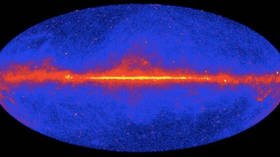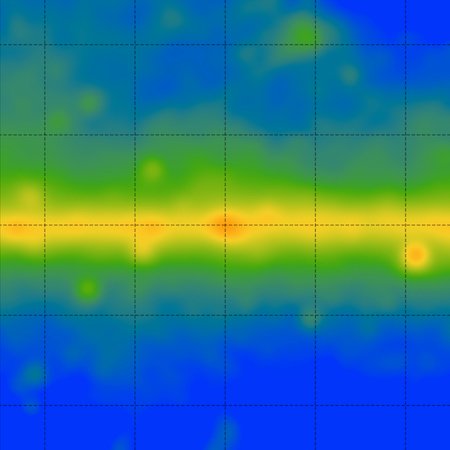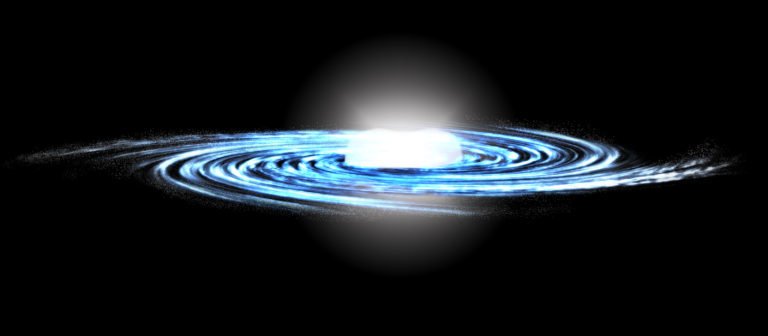Mystery of Milky Way’s strange glow deepens as leading theory dismissed

Experts have long puzzled over the high-energy glow that lights up the center of the Milky Way. The mystery has been deepened by new research that picked apart the leading explanation for the inexplicable phenomenon.
Complete with a massive black hole, the heart of our galaxy is a highly energetic region. This abundance of energy is boosted by the extraordinary gamma-ray glow, which has been the source of intense debate among astronomers since it was discovered over 10 years ago.

The leading explanation for the peculiar anomaly, which is called the Galactic Center GeV Excess (GCE), is that it could be a by-product of dark matter being annihilated. But, alas, fresh research has relegated the idea to the dustbin of science.
Following an exhaustive series of experiments, carried out over the course of three years, researchers from the University of California Irvine (UCI) ruled out dark matter annihilation as the cause of the glow.
“We looked at all of the different modeling that goes on in the Galactic Center, including molecular gas, stellar emissions and high-energy electrons that scatter low-energy photons,” explained the study’s co-author Oscar Macias, a postdoctoral scholar in physics and astronomy. “We took over three years to pull all of these new, better models together and examine the emissions, finding that there is little room left for dark matter.”

The team were keen to stress that their research doesn’t rule out the existence of dark matter in the galaxy. While the research may have dealt a fatal blow to a popular theory, they say their findings should not be considered discouraging.
“There are a lot of alternative dark matter candidates out there,” the other co-author, Kevork Abazajian, a UCI professor of physics and astronomy, explained. “The search is going to be more like a fishing expedition, where you don’t already know where the fish are.”
Also on rt.com Universe to end with a bang, not a whimper, with explosion unlike anything we’ve ever seen, claims new studyThink your friends would be interested? Share this story!













